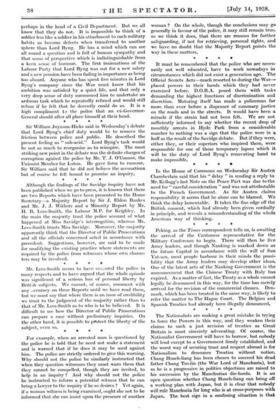For example, when an arrested man is questioned by the
police he is told that he need not make a statement and is warned that if he does it may be used against him. The police are strictly ordered to give this warning. Why should not the police be similarly instructed that when they question witnesses they must warn them that they cannot be compelled, though they are invited, to help in an inquiry ? And why should not the police be instructed to inform a potential witness that he can bring a lawyer to the inquiry if he so desires ? Yet again, if a woman witness is being examined, ought she not to be informed that she can insist upon the presence of another woman ? On the whole, though the conclusions may go generally in favour of the police, it may still remain true, as we think it does, that there are reasons for further safeguarding, if not for retrieving, personal rights, and we have no doubt that the Majority Report points the way in these matters.




































 Previous page
Previous page